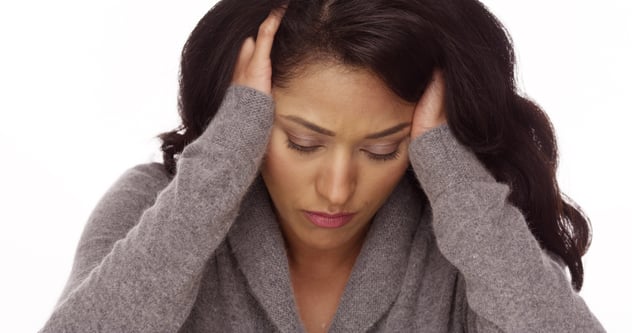
Depressed and anxious, what is the experience? I ask this question because people have unique experiences operating under the words anxiety or depression. Other questions might be: “when you say you are depressed or anxious, where do you feel it in your body?”… “What do you feel?”… “When do you feel it?” Such nuances are vital to the understanding and treatment of these conditions.
Patterns of Depression
Chinese medicine has an elegant approach to assessing health conditions such as depression and anxiety. Given the name of a particular disease, there may be an array of patterns that a person expresses in unique form. In this article, we will explore a few patterns of disharmony and some ways that they might be understood from a physiological point of view.
If the blood is insufficient or lacks smooth circulation, there can be insufficient nutrient supply and waste removal from brain tissues. This pattern is called blood deficiency with blood stasis. The pulse will be thin due to low circulating blood volume, and the tongue will be pale. I also like to pull down the lower eyelid so I can see how the blood fills the vessels. The surface under the tongue may be pale and the vessels congested with blood which fails to flow smoothly. We can increase total circulating blood volume by consuming blackstrap molasses or bone broth soups.
If there is low vitality, then the fatigue contributes to depression. This can become complicated with a lack of exercise and poor eating habits, resulting in poor nutrient supply and waste removal to the brain. This pattern is called qi (chee) deficiency due to lifestyle and damage by food. Regular eating of good quality organic produce with small amounts of regular exercise will put a break in the chain.
Stress induced depression takes place in the overworking of the nervous system and endocrine systems with increased adrenaline. This causes the blood vessels to become tense and can be observed by the practitioner when they take the pulse of the person whom they are treating. The pattern is called liver qi (chee) stagnation. Intensity of emotions such as shock may affect the emotional state, leading to depression and anxiety. Chinese medicine lists 7 emotions as internal causes of disease. Meditation, self-reflection and exercise are our paths to reducing stress.
These are just a few examples of disharmonies and patterns that might produce what a person calls depression or anxiety. It is important to do what is necessary to correct the entire picture in order to produce good long term results. Herbs and acupuncture provide conservative, low risk solutions to the deeper problems of our lives by adjusting how we respond.
Often, there is a story related to why a person is depressed or anxious. But the state which is experienced, be it depression or anxiety, has an origin. This may be from the family in the form of intergenerational trauma or various epigenetic imprints. In Chinese medicine, such influences are addressed by the idea of the kidney system.
Kidneys in Chinese medicine are a trans-systemic expression that includes the central nervous system, bone marrow blood production, reproductive system, endocrine system and urinary tract. The treatment of conditions related to inheritance, the central nervous system and the endocrine system require a lifestyle of relationship with the plant kingdom as healers. A professional herbalist is the ideal person for guiding such a journey.

